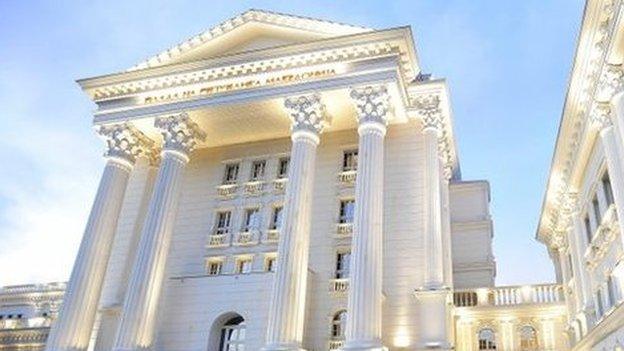Macedonia parliament stormed by protesters in Skopje
- Published
A brawl broke out when protesters stormed the parliament in Skopje.
Protesters stormed into Macedonia's parliament on Thursday after an ethnic Albanian was elected as speaker.
A brawl broke out injuring scores of people, including the Social Democrat leader Zoran Zaev, who was left with blood pouring down his face.
The protesters, supporters of ex-Prime Minister Nikola Gruevski's VMRO party, are demanding new elections.
Politics in the former Yugoslav republic has been deadlocked since an inconclusive election in December.
But the crisis goes back further, to a phone-tapping scandal two years ago.
Mr Zaev has created a coalition with ethnic Albanian parties, but his attempts to form a government have been blocked by the president.
Macedonian nationalists have been protesting on the streets since Mr Zaev tried to form the coalition.
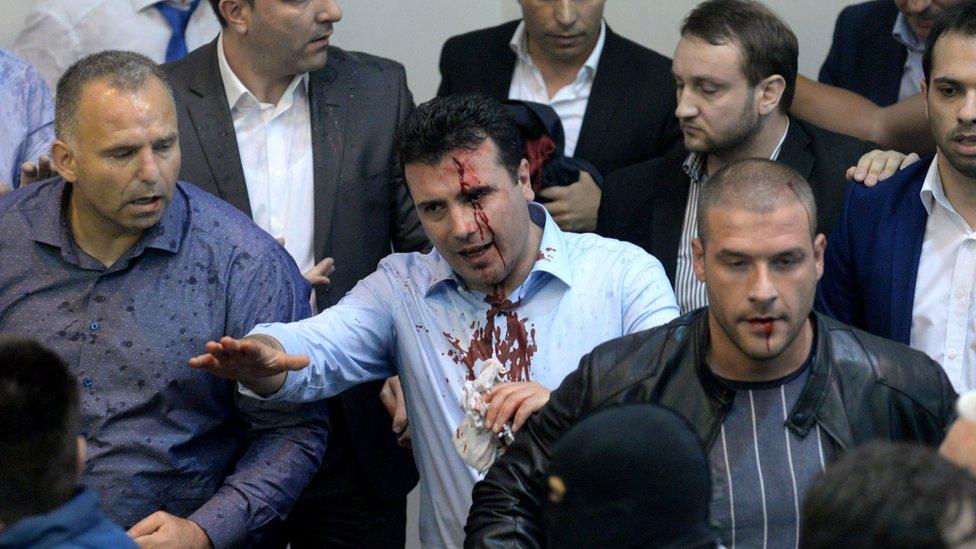
Social Democrat leader Zoran Zaev was among those injured after a fight broke out
Ethnic Albanians make up around a quarter of the country's population.
The people who stormed parliament were angered by the coalition's decision to elect Talat Xhaferi as speaker
They fear moves to improve the status of Albanians threaten Macedonian unity.
Some of the 200 protesters were masked. Witnesses saw broken glass on the floor and traces of blood in hallways.
Police fired stun grenades to disperse protesters and allow politicians to exit the parliament building.
On Friday, the interior ministry said 102 people had been treated in hospital, including 10 MPs and police officers, AFP news agency reported.
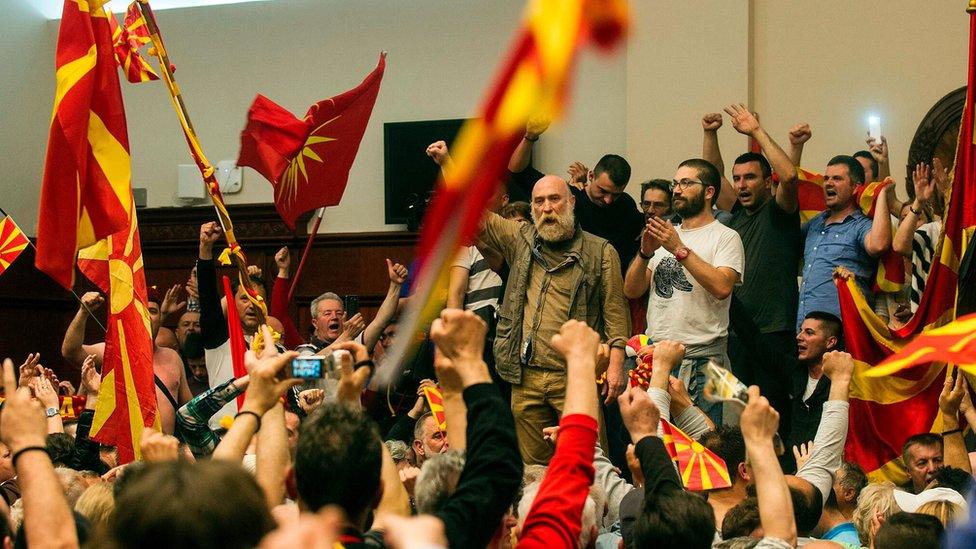
Many of the protesters brought Macedonia's national flag
A statement from the US Embassy in Macedonia, published on Twitter, said: "We condemn the violence in the strongest possible terms.
"It is not consistent with democracy and is not an acceptable way to resolve differences."
The secretary general of Nato, Jens Stoltenberg, tweeted that he was "shocked" by the "attacks".
"All parties should respect democratic process and engage in dialogue, not violence," he wrote.
"Violence has NO place in Parliament. Democracy must run its course," tweeted European Union Commissioner Johannes Hahn.
Skopje has also seen regular protests against the coalition by demonstrators who believe it will damage the country's national unity.
Macedonia came close to civil war in 2001 after an Albanian uprising.
- Published10 June 2024
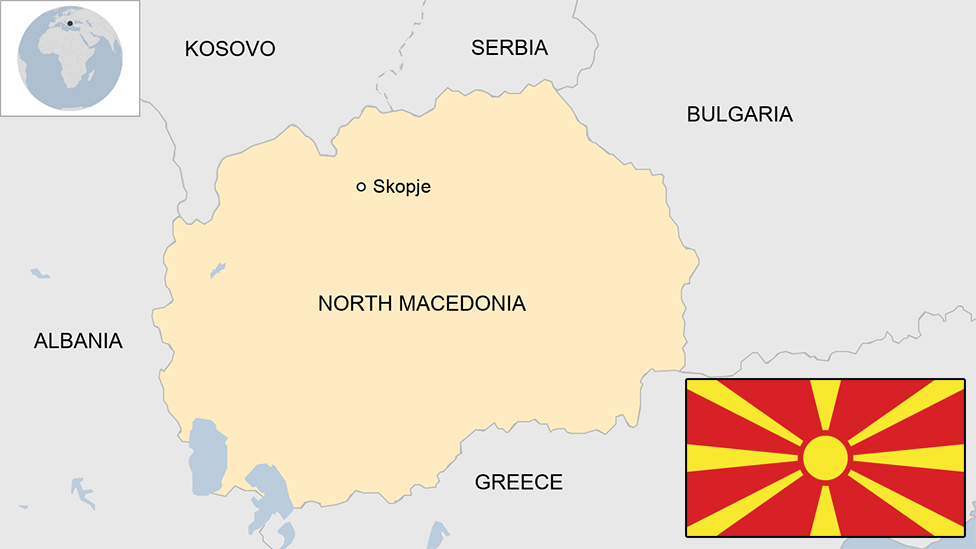
- Published1 March 2017
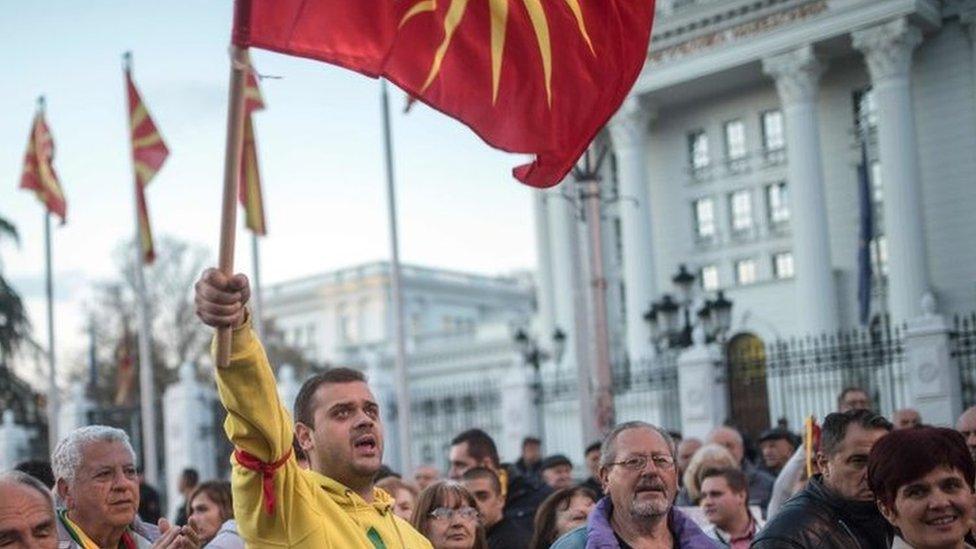
- Published2 June 2015
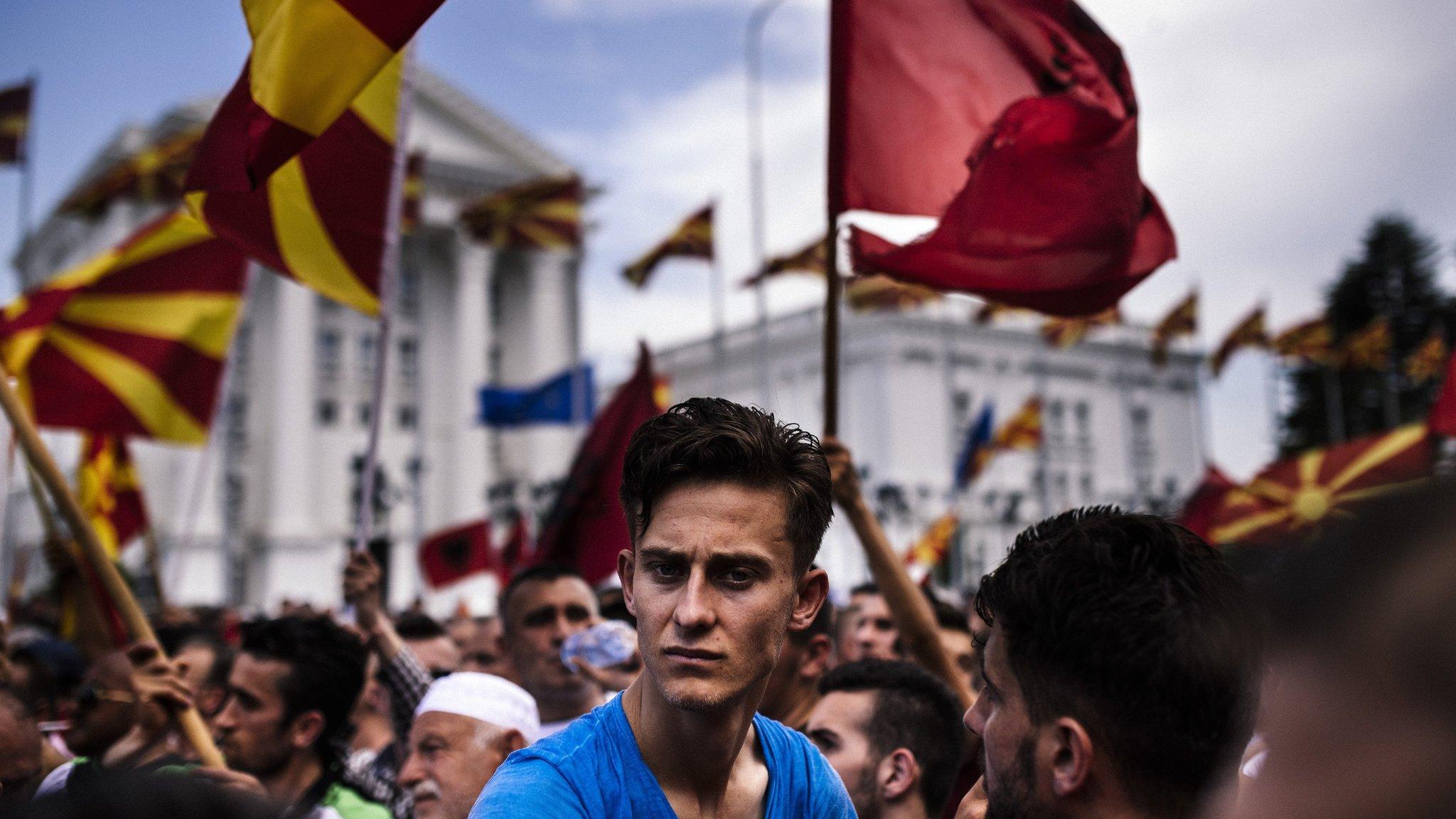
- Published13 May 2015
